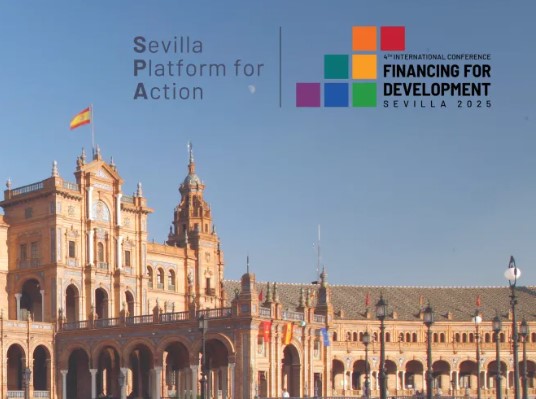From June 30th to July 3rd, the Exhibition and Congress Center (FIBES) in Seville will host the IV International Conference on Financing for Development (FFD) organized by the United Nations. The aim of the meeting, which will be attended by heads of state and government, ministers of finance, foreign affairs, and cooperation, as well as high-ranking officials from multilateral organizations, is to consolidate a new international financing framework guided by the principles of Agenda 2030 and the Paris Climate Agreement. The UN Seville conference promises to significantly influence the future of global finance.
Global Financial Architecture in Transition: The Role of the UN Seville Conference
The conference in Seville comes at a crucial time when the globalist projects of institutional elites are undergoing a reorientation. The main goal is to reform the global financial architecture to mobilize more capital for the Sustainable Development Goals (SDGs). Although the official program presents the meeting as a technical forum, the preparatory documents reveal a profound ideological background. This is characterized by economic interventionism, the pursuit of supranational tax control, and the imposition of globalist agendas.
Parallel to the preparations for the UN Seville conference, the European Parliament will vote on a crucial report on development finance on June 17th. This report, metaphorically referred to as “Letter to the Three Wise Men,” outlines expectations for the meeting.
European Leadership and the Call for Increased Spending
The European Parliament’s resolution emphasizes European leadership in climate finance and international cooperation. It sharply criticizes the United States for its withdrawal from key organizations such as the WHO, the Paris Agreement, and USAID. At the same time, it urges the European Union to “fill the vacuum left by Washington.” A concrete proposal in the document is to increase public spending on development aid in Europe. Furthermore, it demands that an impressive 85% of the EU’s external actions incorporate a “gender perspective.” It should be noted that the EU has already allocated over 79 billion Euros for its Neighborhood, Development and International Cooperation Instrument (NDICI) for the period 2021-2027 – an immense sum to be used in line with Agenda 2030 and the Paris Agreement.
Another striking aspect of the documents is the explicit endorsement of commitments made at COP29 in Baku (Azerbaijan) in 2024. There, it was agreed to mobilize 1.3 trillion dollars annually for climate cooperation and finance from 2035 onwards. This colossal figure would require a complete reorientation of national budgets and a massive redirection of private capital into UN-backed projects. These points are particularly relevant for the discussions at the UN Seville conference.
Global Taxes and Concerns about National Sovereignty
The text also advocates for a series of measures that could represent a significant transfer of tax sovereignty. These include global tax harmonization with a minimum corporate tax rate of 15%, the introduction of new global taxes to fund climate and social policies, and the creation of a United Nations framework convention on international tax cooperation to combat illicit financial flows.
In contrast to the enthusiastic tone of the report and the UN program, the “Patriots for Europe” group, which includes the Spanish party VOX, has voiced sharp criticism. They describe the plans as an “agenda of social demolition” disguised as international cooperation.
VOX Criticizes “Agenda of Social Demolition” and Demands Fiscal Sovereignty
The VOX delegation in the European Parliament defends the position: “Not one more euro from Spaniards should go into any pocket other than that of Spaniards.” They remind that the EU and its member states already provide 42 percent of official global development aid. “Enough of funding gender ideology or climate fanaticism in Swaziland, while Valencians suffer the consequences of DANA and residents of La Palma are still in barracks,” is VOX’s demand.
Santiago Abascal’s party, which already voted against the report in committee, reaffirmed its intention to vote against it in the plenary as well. They strongly urge the Popular Party (PP) not to abstain from voting. “If the PP abstains in the plenary, as it did in the committee, it will allow the left to approve this ideological aberration,” warned party sources.
Critics also warn of the symbolic image that the conference in Seville will convey. A “photo of shame” between Pedro Sánchez and Juanma Moreno Bonilla is planned, with the latter accused of acting as a “globalist messenger” to roll out the red carpet for the UN.
VOX defends an alternative based on fiscal sovereignty and the freedom of states, in contrast to the global governance project promoted by organizations such as the UN, WHO, or the World Economic Forum. “We welcome the decision of leaders like Donald Trump or Javier Milei to abandon these globalist beach bars,” they conclude.
The Fourth Conference on Financing for Development in Seville is therefore far more than a neutral forum for cooperation. It is developing into a decisive attempt to consolidate world governance under a financial architecture controlled by unelected bureaucrats – potentially independent of national priorities and the democratic will of European citizens.




